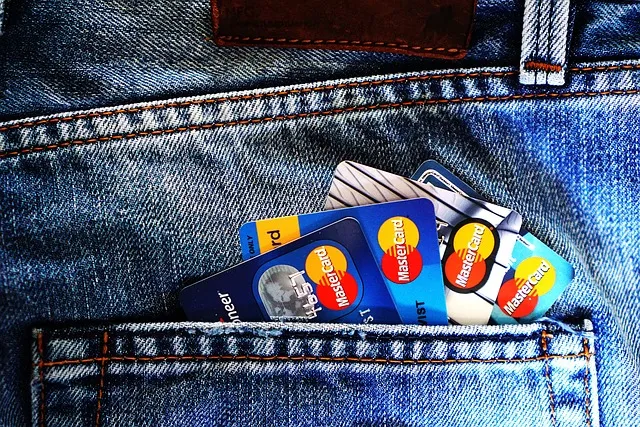Biometric Payment Cards are revolutionising financial transactions by combining security and convenience. Using fingerprint or facial recognition, these cards eliminate the need for PINs, reducing fraud and streamlining payments. In the UK, their adoption is accelerating as banks and fintech firms integrate this technology to enhance digital security. With financial fraud on the rise, Biometric Payment Cards provide a safer alternative to traditional authentication methods.
These cards work by embedding biometric sensors that verify a user’s identity during transactions. If the scanned biometric data matches the stored template, the payment is approved. This ensures that only the cardholder can authorise payments, offering a secure and seamless experience. Unlike passwords, which can be forgotten or stolen, biometric authentication is inherently personal, making it a highly effective fraud prevention tool. As concerns over cybersecurity grow, Biometric Payment Cards are emerging as a key innovation in digital banking.
Page Contents
ToggleGrowing adoption in the UK

The UK is rapidly embracing Biometric Payment Cards, with banks and financial institutions rolling out pilot programmes. Consumer demand for secure and convenient transactions is driving this shift, as biometric authentication offers greater protection against fraud. Major banks are investing in this technology, preparing for large-scale implementation across the country. As more consumers become aware of the benefits, adoption rates are expected to climb steadily in the coming years.
Compared to other European markets, the UK leads in biometric payment innovation. Support from financial regulators and advancements in card technology have facilitated faster adoption. This progress is further driven by the increasing digitisation of financial services, with contactless payments and mobile banking becoming the norm. As digital payments become more prevalent, Biometric Payment Cards are expected to play a central role in the future of UK banking. The shift towards biometric authentication aligns with broader financial industry trends, where security and ease of use are top priorities for both banks and consumers.
Benefits of biometric payment cards
Biometric Payment Cards enhance security and user convenience by eliminating PINs and passwords. Their ability to prevent fraud ensures safer transactions while making payments quicker and easier. This technology also improves accessibility, particularly for those who struggle with traditional authentication methods. The combination of security and convenience makes Biometric Payment Cards an attractive option for both consumers and businesses.
- Enhanced Security: Unique biometric data makes unauthorised transactions nearly impossible.
- Seamless Transactions: Payments are processed quickly without the need for PINs.
- Greater Accessibility: Elderly and disabled individuals benefit from simplified authentication.
By eliminating passwords and PINs, these cards provide a frictionless experience while improving financial security. With efficient payment processing and reduced fraud risk, Biometric Payment Cards are set to redefine modern banking. Additionally, they contribute to reducing fraud-related financial losses for both banks and consumers, strengthening overall confidence in digital payments.
Challenges and concerns
Despite their benefits, Biometric Payment Cards face challenges. Privacy concerns remain a key issue, as users worry about how their biometric data is stored and protected. Financial institutions must ensure data encryption and transparent policies to build trust. Many consumers are hesitant to share biometric information due to fears of data misuse, making clear and reliable security measures essential.
The cost of implementing Biometric Payment is another hurdle, requiring significant investment in technology and infrastructure. While large banks can absorb these expenses, smaller institutions may struggle with adoption. There are also concerns about the durability of biometric sensors on cards, as frequent use could impact their longevity. However, as production costs decrease and technology improves, wider accessibility is expected.
Another challenge is ensuring that biometric authentication works seamlessly across different payment environments. Whether making purchases in physical stores, online, or at ATMs, Biometric Payment Cards must be universally functional. Financial institutions must work closely with payment processors and retailers to ensure smooth integration.
Future of biometric payment cards in the UK
The future of Biometric Payment Cards looks promising, with industry leaders predicting widespread adoption. As banks prioritise security and ease of use, these cards are likely to replace traditional payment methods. The UK’s strong regulatory framework supports innovation, making it an ideal market for biometric banking solutions. With advancements in digital banking and technology integration, Payment Cards will become standard in financial transactions. Their ability to provide secure, fast, and user-friendly authentication makes them a key development in the evolution of banking.
Conclusion: A new era of secure payments
Biometric Payment are transforming the way people transact, offering enhanced security and ease of use. As their adoption grows in the UK, they are expected to replace outdated verification methods. The ability to combine robust fraud protection with a seamless payment experience makes them an appealing choice for both consumers and businesses.
With ongoing technological advancements and increasing consumer trust, Biometric Payment Cards will play a crucial role in the future of digital payments. Financial institutions must continue investing in biometric technology to stay ahead in the evolving banking landscape. As innovation progresses, biometric authentication will likely become the new standard for secure, convenient, and accessible financial transactions.




